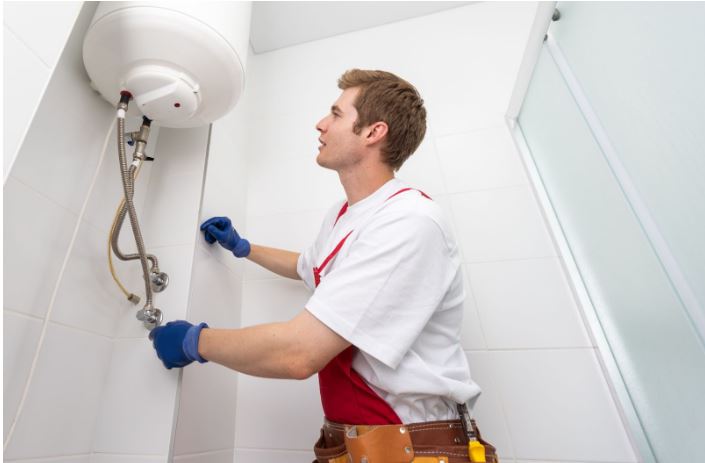
Hot water systems are integral to the comfort and functionality of both residential and commercial properties. They provide a steady supply of hot water for bathing, cooking, cleaning, and heating, making them an indispensable part of modern living. However, the efficiency and longevity of these systems largely depend on how well they are maintained. Regular servicing plays a pivotal role in ensuring that a hot water system operates at its best, offering benefits such as cost savings, improved performance, and a longer lifespan.
The purpose of this article is to explore efficient servicing techniques that enhance the lifespan of hot water systems. By understanding the various aspects of maintenance, property owners can ensure their systems run smoothly and efficiently, minimising the likelihood of unexpected failures and costly repairs.
Understanding Your Hot Water System
Hot water systems come in various types, each with its own mechanism and functionality. The most common types include tank systems, tankless (or instant) systems, and solar-powered systems. An overview of each system can help in understanding their unique components and operational mechanisms.
1. Tank Systems: These systems store a certain amount of water that is kept hot and ready for use. The tank is usually insulated to maintain temperature. Tank systems have elements or burners powered by gas or electricity to heat the water.
2. Tankless Systems: Also known as on-demand heaters, these systems heat water directly without the need for a storage tank. When a hot water tap is turned on, cold water travels through a pipe into the unit, where it is heated by either gas or electric means.
3. Solar Systems: Utilising renewable energy, solar hot water systems use solar panels to absorb sunlight and convert it into heat, which is then transferred to the water through a heat exchanger. These systems often have a backup heater powered by electricity or gas for cloudy days.
Common Components and Their Functions
Regardless of the type, several components are crucial to the functioning of hot water systems. These include:
• Heating Elements & Burners: Responsible for heating the water, these elements vary between electric coils in tank systems and burners in gas-powered units.
• Thermostats: These components regulate the temperature by switching the heating mechanism on or off as needed.
• Anode Rods: Found in tank systems, anode rods help prevent corrosion by attracting corrosive particles in the water, thereby protecting the tank lining.
• Valves: Including temperature and pressure relief valves, these ensure the system operates within safe parameters, releasing pressure if it exceeds safe limits.
Signs Your System Might Need Servicing
Identifying early signs that your hot water system might need servicing can prevent extensive damage and costly repairs. Some common indicators include:
• Inconsistent water temperatures
• Leaks or moisture around the system
• Unusual noises such as banging or clanking
• A reduction in hot water supply
• Visible rust or sediment build-up around the tank or valves
Key Benefits of Regular Maintenance for Hot Water Systems
Regular servicing of hot water systems provides numerous advantages that go beyond mere functionality. These benefits ensure that the system remains a reliable and efficient fixture in homes and commercial spaces.
1. Prevention of Unexpected Breakdowns and Costly Repairs
One of the most significant benefits of regular servicing is the prevention of system failures. Proactive maintenance helps identify potential issues before they become major problems. This preemptive approach not only saves property owners from expensive repairs but also minimises inconvenience caused by unexpected breakdowns.
2. Optimisation of Energy Efficiency and Reduction of Bills
A well-maintained hot water system operates more efficiently, consuming less energy to provide the same level of service. Regular maintenance tasks such as flushing out sediment and checking thermostats ensure optimal performance, which in turn reduces energy consumption and cuts down utility bills.
3. Enhancing Safety Standards of the System
Safety is paramount when it comes to hot water systems. Leaks, pressure build-ups, and faulty components can pose significant risks. Regular servicing benefits include ensuring that safety mechanisms such as pressure relief valves function correctly and help identify worn-out parts that could lead to hazards. By addressing these potential issues early, property owners can maintain a safer environment for their families and tenants.
4. Increasing the Overall Lifespan of the Hot Water System
Regular maintenance keeps all parts of the hot water system in top condition, significantly extending its useful life. Components such as anode rods and valves that are routinely checked and replaced prevent corrosion and wear, ensuring the system remains operational for longer periods.
Essential Servicing Tasks for Longevity
To achieve the maximum lifespan from a hot water system, several essential servicing tasks should be routinely performed. These tasks not only maintain efficiency but also safeguard against sudden malfunctions.
1. Importance of Checking for Mineral Build-Up and Regular Flushing
Over time, mineral deposits from water can accumulate at the bottom of the tank, reducing the efficiency of the heating process. This sediment build-up can lead to overheating and damage to the heating elements. Regularly flushing the system removes these deposits, improving performance and preventing damage.
2. Inspection of Anode Rods in Tank Systems to Prevent Corrosion
The anode rod, also known as the sacrificial rod, plays a vital role in preventing rust in tank systems. However, it needs to be inspected and replaced periodically as it wears down. Regular checks ensure that the rod is still effective in its role, safeguarding the tank from corrosion.
3. Checking and Adjusting the Thermostat Settings
Thermostats control the heating elements based on the set temperature. Incorrect settings can either increase energy use or fail to heat the water adequately. Regular monitoring and adjustment of thermostat settings ensure the system operates efficiently while providing the desired water temperature.
4. Ensuring Valves and Connections Are in Good Working Order
Valves such as the temperature and pressure relief valve are critical in maintaining system safety. These should be inspected to ensure they open and close correctly. Additionally, checking all other connections for leaks or wear helps prevent unnecessary water loss and damage.
DIY Maintenance vs. Professional Servicing
Deciding whether to carry out maintenance tasks yourself or to hire a professional can be a tricky decision for property owners. Each option comes with its own set of advantages and disadvantages.
1. Pros and Cons of Handling Minor Maintenance Tasks Yourself
DIY maintenance can be cost-effective and allows property owners to take control of their systems. Simple tasks such as checking thermostats or flushing tanks can be done with basic tools and a little research. However, DIY efforts might lack the thoroughness and expertise that professionals provide, potentially overlooking critical issues.
2. When to Call a Professional for Complex Maintenance Tasks
Complex tasks such as anode rod replacement or diagnosing unusual noises are best left to professionals. Certified technicians have the necessary tools and expertise to identify and rectify complex problems, ensuring that all maintenance work complies with safety standards.
3. Benefits of Hiring Certified Technicians for Routine Servicing
Certified technicians bring a wealth of experience and knowledge, ensuring comprehensive maintenance. They can provide valuable insights into the system’s condition and recommend specific actions to enhance performance. Moreover, professional servicing often includes warranties, offering additional peace of mind.
4. Cost Implications of DIY Versus Professional Services
While DIY maintenance might initially seem cheaper, it can lead to costly mistakes if not done correctly. Professional servicing, although more expensive upfront, often results in long-term savings by preventing major repairs and extending the system’s lifespan.
Scheduling: How Often Should You Service Your Hot Water System?
Understanding how often to service a hot water system helps in setting an effective maintenance schedule, ensuring that the system remains efficient and reliable.
1. Recommended Servicing Frequency for Different Types of Systems
The servicing frequency can vary based on the type of hot water system. Generally, tank systems should be serviced annually, whereas tankless systems may require less frequent checks, typically every two years. Solar systems should be inspected annually to ensure panels and backup systems are functioning correctly.
2. Indicators That Prompt Immediate Servicing
Certain signs might require immediate servicing, such as noticeable leaks, erratic water temperatures, unusual noises, or a sudden increase in utility bills. Addressing these signs promptly helps prevent more severe damage.
3. Seasonal Considerations for Hot Water System Maintenance
Different seasons may demand specific maintenance tasks. For example, before winter, it’s crucial to ensure the system is performing optimally to handle the increased demand for hot water. During warmer months, maintenance might focus on cleaning and inspecting components affected by weather.
4. Tips for Setting a Regular Maintenance Schedule
Establishing a consistent maintenance routine involves setting reminders and working with a reputable servicing company. Many service providers offer maintenance plans which include regular checks and discounts on repairs, providing a cost-effective solution for long-term care.
Conclusion
In summary, regular servicing is essential for extending the lifespan of hot water systems. It prevents unexpected breakdowns, optimises energy efficiency, enhances safety, and ultimately saves property owners from costly repairs. While DIY maintenance can handle minor tasks, professional servicing ensures thorough care and expert handling of complex issues.
Taking a proactive approach to hot water system maintenance results in reliable and efficient performance, contributing to long-term savings and comfort. Property owners are encouraged to schedule their next hot water system service today, ensuring peak efficiency and longevity of this vital household component. By balancing routine DIY tasks with professional services, one can enjoy the benefits of a well-maintained hot water system for years to come.
Write and Win: Participate in Creative writing Contest & International Essay Contest and win fabulous prizes.


